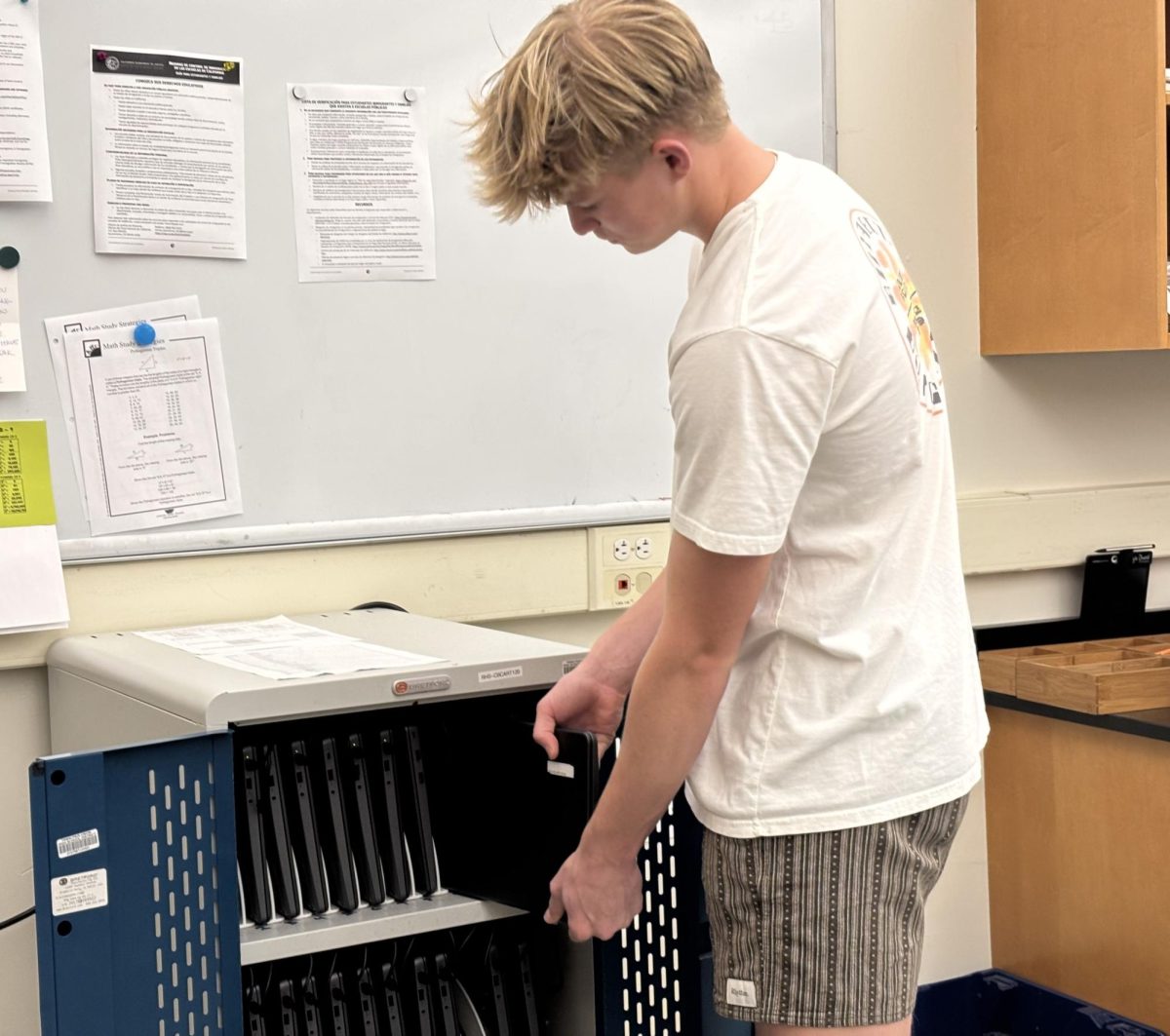On March 21-24, the Advanced Drama class took to the stage in their annual Shakespeare production. This year, they performed “A Midsummer Night’s Dream,” directed by Eric Berkowitz, head of the drama department, and Elena Wright, a frequent guest artist.

“A Midsummer Night’s Dream” (MSND), one of William Shakespeare’s comedies written in 1596, is the tale of two lovers, Hermia and Lysander. They wish to be married but are forbidden to wed because Hermia’s father, Egeus, demands that she marry his choice of Demetrius. The lovers decide to elope and escape into a nearby forest. Demetrius follows them but Helena, a friend of Hermia who is in love with Demetrius, clings to him. While in the forest, Oberon, king of the fairies, summons Puck, a sprite, to help him find a flower that will cause his wife Titania to fall in love with him again. As instructed by Oberon, Puck uses magic on Titania, but she accidentally falls for Bottom, one of the Athenians used to provide comic relief. For fun, Puck also uses the flower on Lysander and Demetrius. This causes them both to fall in love with Helena, which angers Hermia.
Due to the play’s popularity, the number of cast members was greater than the number of roles, so the directors chose to double-cast the characters of Hermia and Helena, as well as the fairies Cobweb and Mustardseed. Junior actresses Amira Jain and Lily Gaul switched roles of Helena and Mustardseed while Olivia Ray and Leela Dembowski swapped Hermia and Cobweb.
Junior Claire Champommier, who played Puck, spoke about the issues the cast faced with MSND.

“It’s a challenging show in the way that it’s a comedy. There’s a pressure that we have to be funny, but we realized if you try too hard then maybe it isn’t what we thought it would be. Once we got into our flow, we found our natural state within it, ” Champommier said.
Dembowski, similar to Champommier, found it challenging to do a more humorous play, as they are accustomed to more dramatic Shakespearean plays.
Co-director Elena Wright often works with Shakespeare and said she enjoys watching the actors grow with the play.
“Doing a Shakespeare production with people who have not done a Shakespeare production before is always a journey to the Himalayas. It starts at the base of the mountain and you have a long climb but when you get to the top, you get to ski down it,” Wright said. “Watching them get to discover how much fun Midsummer is and to watch them go from ‘What is this play?’ to ‘This is a play!’… is an honor and it’s why I like to do it.”
Some of Wright’s favorite moments during the rehearsals were watching the actors have breakthroughs, helping the play start to feel less foreign.

“I remember a time where Jackson [Beer] was having a moment … where he started to find out how far you can go with Shakespeare and of course [Berkowitz] and I have been telling them ‘you can go really far, you can go really far’ but… you can’t make them, they have to find it themselves. I think maybe one of the first times Jackson [crawled] over Riley [during the performance by the Athenians], I think moments like that, are what broke open the play for everyone,” Wright said.
Junior Theo Wood, who played Oberon, said that stage manager junior Kelsey Middleton was key to the cast learning the play.
“Our stage manager is great because she loves Shakespeare and she’s been really good throughout the process helping with the meaning of words,” Wood said.
“I think that Midsummer has the easiest language out of all of his plays so that was a lot easier. We didn’t do as much text analysis like we did last year with Macbeth; that makes it easier for the audience to understand,” Middleton said.

Champommier also recognized Middleton’s efforts to help create a unique production of MSND.
“Our stage manager did a lot more work than the typical stage manager would, making this production of Midsummer more different than a typical production is. We had someone on the inside who had tabs on all pages of the show and was able to really support us through the run,” Champommier said.
Wright said that working with Shakespeare takes time, but what makes it worthwhile is when the language feels natural and the audience connects with the story.
“I think you have to repeat it until it’s yours, where it doesn’t feel like it’s Shakespeare telling you to say something and it doesn’t feel like a director telling you to go somewhere,” Wright said. “That comes at the very very end and that usually comes when the audience starts rewarding you for something.”






